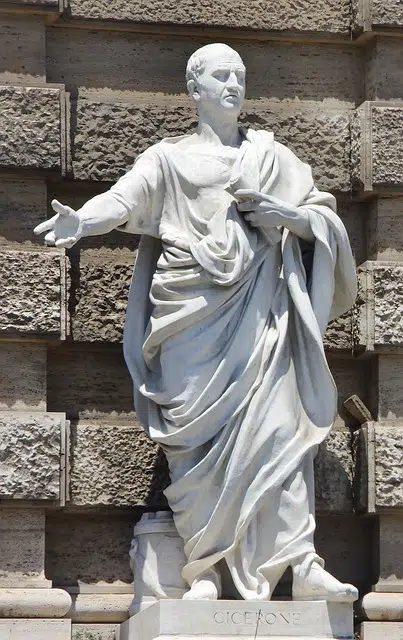
The Philippics were the proclamations of Demosthenes against King Philip II
The idea of philippic comes from the Latin Philippĭca , which refers to a speech about Philip . This is linked to Demosthenes ' proclamations against King Philip II of Macedonia .
A damning speech
A philippic is a dissertation or an address that is violent against something or someone . This is an invective : a damning harangue.
Before continuing to advance with the concept, it is important to delve into the historical origin of the term to fully understand its meaning . In this context it is worth mentioning that Demosthenes (384 BC – 322 BC) was a prominent Athenian politician and orator, while Philip II of Macedonia (382 BC – 336 BC) -father of Alexander the Great – was a powerful monarch.
As Philip II of Macedonia began to accumulate power , Demosthenes began to make public criticism, considering that this situation put Athens and the rest of the city-states of Greece at risk. The First Philippic was written between 351 BC. C. and 350 BC to warn the Athenians about the danger and incite them to resist.
Then there was a Second Philippic and a Third Philippic . In all of them, Demosthenes tried to contain the advance of Philip II of Macedonia and promoted a confrontation against this king's army .
In today's language
Returning to the current use of philippic, it can be said that it refers to content or messages that include strong criticism . For example: “In his tirade against the president, the opposition deputy emphasized the president's supposed authoritarianism,” “After an almost two-hour tirade against the coach, the footballer announced his resignation from the national team,” “I don't like him .” "The government's attack on the media, I think, affects freedom of expression."
In this context we must mention the expression ecar un filípica , which is used to censure or reprimand a person in a vehement, sour and severe manner. A more vulgar or common way of saying the same thing is to scold , and this is usually done by parents to teach their children as a result of their bad behavior. For a person to insult another person, the cause or trigger must be very serious.
Returning to the examples presented above, the deputy who speaks out against the head of government has a message of great relevance for the country, since he accuses the person who leads it of having authoritarian treatment, something that opposes the freedom of the people. The second tells us about the deep dissatisfaction that a soccer player feels , which is why he makes an extensive and forceful speech addressed to his coach to announce that he will no longer be part of the team, taking the opportunity to complain and claim.
Finally comes an example that may be more or less familiar to us depending on our geographical location. The issuer expresses his displeasure with the fact that the government attacks the media, pushing them to keep quiet about certain things and embellish others, depriving them of their well-deserved freedom of expression . This verbal violence against journalists is represented in the prayer as a "governmental philippic."

Cicero's fourteen speeches (photo) against Mark Antony were also philippics
Other examples
The speeches that Cicero issued against Mark Antony are also known as Philippics. These fourteen sermons were characterized by being charged with fury, and were delivered after Caesar 's death, when he began to feel a strong rivalry against Mark Antony as part of the resulting struggle for power.
It is important to mention that these philippics issued by Cicero, considered the Roman orator par excellence, did not give him the results he expected. Marco Antonio sent a group of mercenaries to take his life, an event that took place in the year 43 BC. c.
